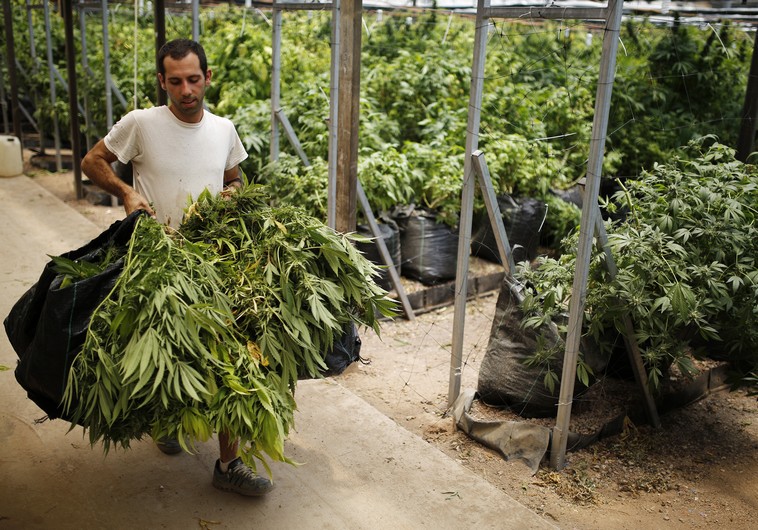Breaking bud: Israeli cannabis company brings smokeless meds to New Mexico
The Israeli company Panaxia already launched a production facility in Bernalillo, now it will offer smokeless proprietary cannabinoids in New Mexico.
 A worker carries sacks of newly harvested cannabis plants at a plantation near NazarethUpdated:
A worker carries sacks of newly harvested cannabis plants at a plantation near NazarethUpdated: